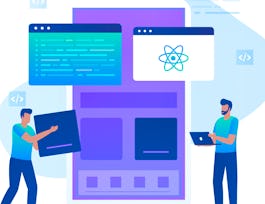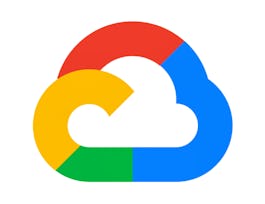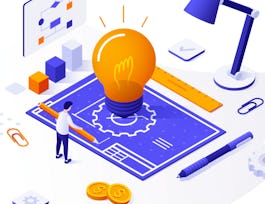You’ve hit a major milestone as a computer scientist and are becoming a capable programmer. You now know how to solve problems, write algorithms, and analyze solutions; and you have a wealth of tools (like data structures) at your disposal. You may now be ready for an internship or (possibly) an entry-level software engineering job. But can you land the internship/job? It depends in part on how well you can solve new technical problems and communicate during interviews. How can you get better at this? Practice!


Mastering the Software Engineering Interview
This course is part of Object Oriented Java Programming: Data Structures and Beyond Specialization
Taught in English
Some content may not be translated



Instructors: Mia Minnes
69,765 already enrolled
Included with 
Course
(552 reviews)
98%
Skills you'll gain
Details to know

Add to your LinkedIn profile
20 quizzes
Course
(552 reviews)
98%
See how employees at top companies are mastering in-demand skills

Build your subject-matter expertise
- Learn new concepts from industry experts
- Gain a foundational understanding of a subject or tool
- Develop job-relevant skills with hands-on projects
- Earn a shareable career certificate


Earn a career certificate
Add this credential to your LinkedIn profile, resume, or CV
Share it on social media and in your performance review

There are 6 modules in this course
Welcome to our course on effectively communicating your technical abilities. This course focuses on landing a technical job and excelling in a technical role. To succeed in job interviews, you’ll need to be able to confidently articulate your ability to solve challenging problems and come up with new solutions under potentially stressful conditions. After getting a technical job, the role of communication increases even more. You’ll need to work with other members of the team, communicate technical challenges and successes, and potentially sell the value of your work to those outside the company. Our goal is that by the end of this course each and every one of you understands the importance of technical communication, and has received constructive feedback on areas of potential improvement. In achieving this goal you will also learn about algorithmic thinking on the fly, how to evaluate a good interview answer to a difficult technical problem, and how “soft” skills impact interview outcomes. In this module, we’ll begin to see what a technical interview looks like, from the perspective of a major tech company. We’ll then focus on how to best get the interview in the first place. If you're not in the job market right now, you might want to skim the videos in this module and skip ahead to the Resume Critique (for insights about how to present yourself in writing) or the Introductions assignment (on effectively presenting yourself in person).
What's included
15 videos5 readings6 quizzes3 discussion prompts
What's included
1 reading1 quiz1 peer review
Now that you’ve gotten warmed up, it’s time to practice your coding skills. One of the things you’ll almost certainly be asked to do during a technical phone interview is to code up a solution to a problem in a shared text document (e.g. Google doc) while you are on the phone with the interviewer. This experience can be intimidating, unfamiliar and humbling if you are not prepared, so this week we will give you lots of practice and tips for getting through this part of the interview with flying colors.
What's included
12 videos3 readings6 quizzes
This week, we’re going to focus on how to speak about your experiences working on projects and how to speak about the technical problems you’ve experienced and how you’ve solved those problems. We’ll introduce the STAR (Situation, Task, Action, Results) model for presenting your work, and discuss how to and how not to present the problem you worked on and the solution you developed. We’ll also discuss the communication skills that are critical to this task. It’s a fun week with lots of examples (both good and bad), which ends with an assignment where you will present your own work on video and submit this video for peer review.
What's included
16 videos1 reading1 quiz
What's included
1 video1 quiz1 peer review1 discussion prompt
As we saw in week 2, coding on the fly can be a difficult task! In this final week of the course we’ll revisit the skill of live problem solving by looking at how to solve more challenging algorithmic problems (and write the code associated with the solution) on the whiteboard. You’ll recognize these problems as “classic” interview problems you’ve probably heard a lot about, designed to test your problem solving skills as well as your analysis and coding abilities. Don’t worry, we’ll teach you how to approach them with confidence through a 6-step process to addressing technical questions (hint: you don’t have to produce the perfect solution on the first try!). We’ll show you how to use this process in a number of examples. But of course, there is no substitute for practice, so we’ll set you up with how to train and evaluate yourself.
What's included
17 videos5 readings5 quizzes
Instructors



Offered by
Recommended if you're interested in Software Development

University of California San Diego
Why people choose Coursera for their career




Learner reviews
Showing 3 of 552
552 reviews
- 5 stars
71.79%
- 4 stars
18.62%
- 3 stars
5.60%
- 2 stars
1.80%
- 1 star
2.16%
New to Software Development? Start here.

Open new doors with Coursera Plus
Unlimited access to 7,000+ world-class courses, hands-on projects, and job-ready certificate programs - all included in your subscription
Advance your career with an online degree
Earn a degree from world-class universities - 100% online
Join over 3,400 global companies that choose Coursera for Business
Upskill your employees to excel in the digital economy
Frequently asked questions
Access to lectures and assignments depends on your type of enrollment. If you take a course in audit mode, you will be able to see most course materials for free. To access graded assignments and to earn a Certificate, you will need to purchase the Certificate experience, during or after your audit. If you don't see the audit option:
The course may not offer an audit option. You can try a Free Trial instead, or apply for Financial Aid.
The course may offer 'Full Course, No Certificate' instead. This option lets you see all course materials, submit required assessments, and get a final grade. This also means that you will not be able to purchase a Certificate experience.
When you enroll in the course, you get access to all of the courses in the Specialization, and you earn a certificate when you complete the work. Your electronic Certificate will be added to your Accomplishments page - from there, you can print your Certificate or add it to your LinkedIn profile. If you only want to read and view the course content, you can audit the course for free.
If you subscribed, you get a 7-day free trial during which you can cancel at no penalty. After that, we don’t give refunds, but you can cancel your subscription at any time. See our full refund policy.




